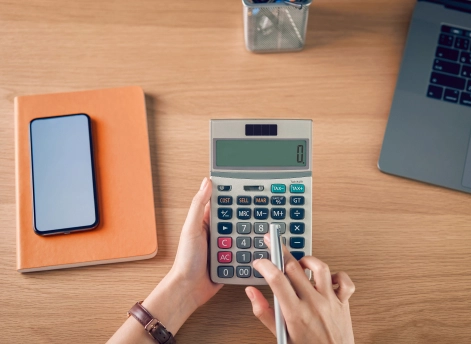Property investors make the mistake of leaving everything until tax time. They scramble to collect documents, delay their tax return, and risk missing valuable deductions.
The key is preparation. From the day you purchase an investment property, start keeping records of all income and expenses. This not only makes life easier at tax time but also ensures you maximise your deductions and manage your cash flow effectively.
Invest Property Tax Spreadsheet
A simple income & expenses spreadsheet can help track your property’s performance and provide your accountant with accurate figures.
You can download our free investment property spreadsheet to smoothen your accounting.
Investment Property Tax Documents You Will Need
While you can hand over everything to your accountant, professional investors usually provide a summary. Here’s what to prepare:
Purchasing Expenses (if applicable)
If you bought the property this year, include:
- Contract of sale (relevant pages)
- Settlement statement (from your conveyancer)
- Stamp duty
- Government fees (mortgage registration, transfer fees)
- Pest, building and strata inspections
- Conveyancing fees
- Bank cheque fees
- Borrowing expenses (loan setup costs, LMI, etc.)
- Penalty interest (if applicable)
Management Expenses
Your property manager’s annual statement usually covers:
- Property management fees
- Letting fees
- Tribunal costs
- Postage, handling, and sundry charges
- Rates and levies paid on your behalf
Rates & Levies
Keep notices for:
- Council rates (4 per year)
- Water rates (4 per year)
- Body corporate/strata levies (quarterly)
- Land tax (annual)
Loan Expenses
Most lenders issue an annual statement showing:
- Interest paid
- Monthly/annual fees
- Loan setup costs (application, valuation, documentation)
- Lenders Mortgage Insurance (if applicable)
- Brokerage or legal fees
If you purchased or refinanced this year, include borrowing costs. Remember: interest is deductible immediately, but borrowing costs are spread across several years.
Repairs & Renovations
The ATO treats these differently, so break them down for your accountant:
- Repairs: plumbing, electrical, minor fixes
- Renovations: major upgrades or improvements
- Construction Costs: if newly built or developed
- DA/architect/surveyor fees
- Gardening, pest control, cleaning
Other Expenses
- Building insurance (except strata properties)
- Landlord insurance
- Depreciation schedule (once-off setup)
- Stationery, phone, postage
- Travel for property inspections
- Legal fees
Income
Usually available in your property manager’s annual statement:
- Total rent received
- Water usage billed to tenants
- Insurance payouts (if any)
Additional Information Your Accountant Will Need
Beyond documents, provide details such as:
- Property address & ownership percentage
- Purchase date & rental start date
- Number of days rented vs private use
- Assets purchased/sold (for depreciation)
- Loan redraws made during the year
Align Your Investment Strategy With Tax Planning
Your accountant can give tailored advice if they understand your long-term intentions. Discuss whether you plan to:
- Hold for the long term
- Positively or negatively gear the property
- Renovate, demolish, subdivide, or develop
- Purchase in your own name or through a trust
Tip: Ownership structure is hard to change later, so get advice before purchasing.
What If You’re Missing Figures?
Don’t panic. Most information can be retrieved by contacting:
- Your property manager
- Your council
- Your bank or mortgage broker
- Your conveyancer
A quick call usually sorts it out.
The Importance of Good Record Keeping
If your portfolio grows beyond five properties, poor record-keeping can cost you both time and higher accounting fees.
Best practice:
- Keep a folder (digital or physical) for each property
- Store statements, receipts, and tax documents in order
- Separate income and expenses for each property
Deducting Investment Loan Expenses Correctly
Many investors miss out on full deductions on investment loans because loan fees are charged at different times. Always break down:
- Interest (deductible immediately)
- Borrowing costs (written off over several years)
If you’re unsure, your mortgage broker can confirm the total costs.
Final Words
Proper management of your investment tax documents can help you maximise returns and avoid costly mistakes. You need to prepare early, keep clear records, and ultimately, work with your accountant to ensure every deduction is claimed.
Please do note that every situation is unique so, your accountant may require additional documents or information not included in this list.
